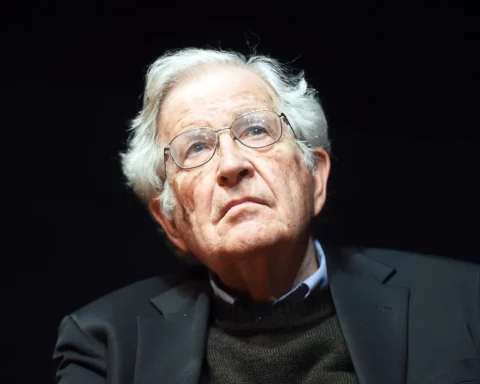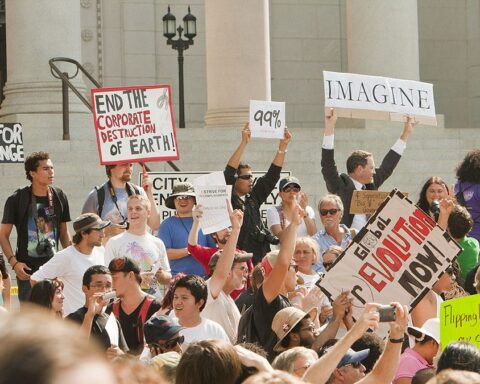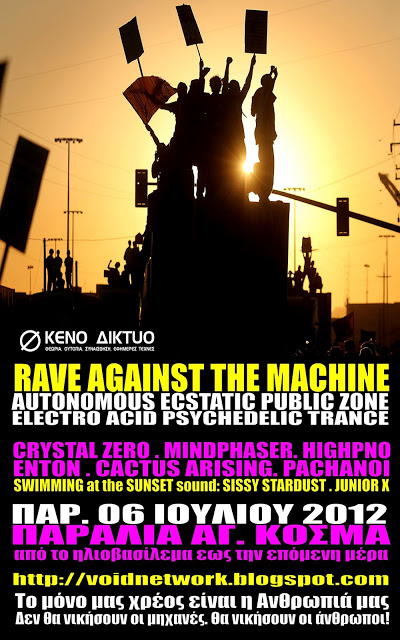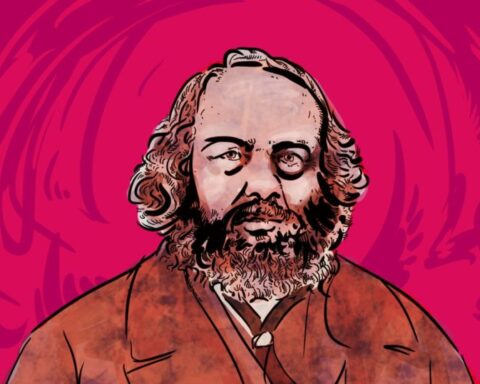One central facet to the development of the modern institutional society under which we live and are dominated today, was the redefining of the concept of ‘democracy’ that took place in the early 20th century.
This immensely important discussion took place among the educated, elite intellectual class in the United States at that time, and the consequences of which were profound for the development of not only American society and democracy, but for the globalization that followed after World War II.
The central theme that emerged was that in the age of ‘mass democracy’, where people came to be known as “the public,” the concept of ‘democracy’ was redefined to be a system of government and social organization which was to be managed by an intellectual elite, largely concerned with “the engineering of consent” of the masses in order to allow elite-management of society to continue unhindered.
The socio-economic and political situation of the United States had, throughout the 19thcentury, rapidly changed.
Official slavery was ended after the Civil War and the wage-slave method of labour was introduced on a much wider scale; that is, the approach at which people are no longer property themselves, but rather lend their labour at minimal hourly wages, a difference equated with rental slavery versus owned slavery.
While the system of labour had itself changed, the living conditions of the labourers did not improve a great deal. With Industrialization also came increased urbanization, poverty, and thus, social unrest.
The 19th Century in the United States was one of near-constant labour unrest, social upheaval and a rapidly growing wealth divide. And it was not simply the lower labouring classes that were experiencing the harsh rigors of a modern industrial life. One social critic of the era, writing in 1873, discussed the situation of the middle class in America:
Very few among them are saving money. Many of them are in debt; and all they can earn for years, is, in many cases, mortgaged to pay such debt… [We see] the unmistakable signs of their incessant anxiety and struggles to get on in life, and to obtain in addition to a mere subsistence, a standing in society… The poverty of the great middle classes consists in the fact that they have only barely enough to cover up their poverty… their poverty is felt, mentally and socially, through their sense of dependence and pride. They must work constantly, and with an angry sense of the limited opportunities for a career at their command.[1]
As immigrants from Europe and Asia flooded America, a growing sense of racism emerged among the faltering middle class. This situation created enormous tension and unease among middle and working class Americans, and indeed, the industrialists who ruled over them.
Yet many in the middle class viewed the lower class, which was increasingly rebellious, as well as the immigrant labourers – also quite militant – as a threat to their own standing in society. Instead of focusing primarily on the need for reorganization at the top of the social structure, they looked to the masses – the working people – as the greatest source of instability.
Their approach was in attempting to preserve – or construct – a system beneficial to their own particular interests. Since the middle class survived on the backs of the workers, it was not in their interest as a class to support radical workers movements and revolutionary philosophies. Thus, while criticizing those at the top, the call came for ‘reform’, not revolution; for passive pluralism not democratic populism; for amelioration, not anarchy.
This is what became known as the ‘Progressive Movement’ in American history. Influential journalists became leading ‘Progressives,’ and prominent social thinkers and social critics began further analyzing and arming the journalists with reformist ideas.
The middle class was itself a major audience for progressive journalists. They acknowledged the need for social change and reorganization, and pushed for a method of achieving such change through the rational approach of ‘social science’ and “social evaluation.”[2]
One of these leading progressive journalists, Edward Bellamy, wrote a book in 1888, “Looking Backward,” in which he argued that, “it would be the force of public opinion – opinion bolstered by the instrument of reason – that would perform the task of remaking the world for the benefit of all humanity.” Thus, “an informed and intelligent ‘public’ would be the agency through which a new historical epoch would be initiated.”[3]
This progressive form of journalism came to be known as “muckraking,” a term coined by Teddy Roosevelt in 1906, as this reform-oriented investigative journalism “began to reshape the discourse of public life,” driven by increasing discontent over governmental and corporate corruption.
The notion of “the public” was born in the eighteenth century Enlightenment, fused with the notion that the public was a rational body of persons, able to comprehend, identify and organize facts, premised on – as philosopher Jürgen Habermas articulated – the “informed, literate men, engaged with one another in an ongoing process of ‘critical-rational’ debate.” Thomas Jefferson reiterated such notions, suggesting that, “the creed of our political faith” rested at “the bar of public reason.” Progressive journalism gave profound emphasis to the promotion of facts and “social documentation.”[4]
Mass circulation media had changed the nature of “the public” in the late 19th century. In particular, the newspaper industry grew, and like with other industries between the 1880s and World War I, “financial consolidation and technological innovation combined to alter the character and scale of big-city and small-town journalism,” as newspapers became big business. Thus, news was becoming ‘standardized,’ and the growth and business of magazine publishing followed suit.[5]
Yet, the proliferation of mass media was of a dual nature. While more people were able to gain access to more information from more places simultaneously, there was also the development of a trend in the emergence of a “public” increasingly defined as “spectators,” no longer active participants in the ‘public square,’ but observers from afar, in their geographically segregated middle class.[6]
As the first decade of the 20th century drew to a close, and World War I drew nearer, a new concern was increasingly developing among the ‘Progressive’ movement and its ideologues and journalists.
While continuing to push for reform, there was a growing rumbling and sense of revolution brewing from below, among the working class people. This concern increasingly moved to the forefront among Progressive intellectuals, who saw their own class and social conceptions threatened by the grumbling masses trapped in poverty beneath them.
Perhaps the most influential intellect of the early 20th century was a man named Walter Lippmann, a Harvard graduate who joined with Progressive publicists and had even joined the Socialist Party in 1910. By 1914, however, Lippmann had turned from his socialist inclinations, and wrote the well-received Drift and Mastery, which prompted Teddy Roosevelt to refer to Lippmann as “the most brilliant man of his age,” at just 25 years old. Lippmann’s principle concern was with the notion of the people ruling:
Ongoing middle-class hostility toward big business – once understood as a constructive catalyst for social reform – had now become, to Lippmann’s increasingly conservative mind, an inadvertent stimulus of social disintegration. As attacks on the practices of big business mounted and an increasingly militant working-class movement challenged the very concept of privately held wealth, Lippmann became more and more alarmed… In a country once “notorious for its worship of success,” Lippmann wrote, public disfavor was being heaped “savagely upon those who had achieved it.”[7]
Lippmann held the muckraking journalists increasingly responsible for this change on social perception, in which social unrest “threatened to spin out of control.” Lippmann described what he saw as an atmosphere of “accusation,” largely aimed at big business, which he viewed as “a collective psychological malady, a dangerous condition of paranoia, that, unless checked, posed a greater danger to society than the excesses of wealth.” Society was a pot on the verge of boiling over. As Lippmann wrote:
The sense of conspiracy and secret scheming which transpire is almost uncanny. “Big Business,” and its ruthless tentacles, have become the material for the feverish fantasy of illiterate thousands thrown out of kilter by the rack and strain of modern life… all the frictions of life are readily ascribed to a deliberate evil intelligence, and men like Morgan and Rockefeller take on attributes of omnipotence, that ten minutes of cold sanity would reduce to a barbarous myth.[8]
In 1909, President Theodore Roosevelt gave an interview with the New Haven Registerin which he lamented that the excesses of big business, coupled with the challenge of muckraking journalism, was creating a deeply precarious situation, in which, “sooner or later, unless there is a readjustment, there will come a riotous wicked, murderous day of atonement.”
Thus, a “search for order” had come to dominate the minds of the once-reformist intellectuals of the day. As Stewart Ewen wrote in his excellent book, PR! A Social History of Spin:
Progressives looked for new strategies that might be employed to contain this impending social crisis. In this quest, a growing number turned toward the new ideas and techniques of the social sciences, hoping to discover foolproof instruments for diagnosing social problems and achieving social stability… To Lippmann and a growing number of others… the social sciences appealed less in their ability to create an informed public and more in their promise to help establish social control.[9]
Lippmann felt that the “discipline of science” would need to be applied to democracy, and that, “social engineers, social scientists, armed with their emerging expertise, would provide the modern state with a foundation upon which a new stability might be realized.” Thus, explained Ewen:
[N]ovel strategies of social management and the conviction that a technical elite might be able to engineer social order were becoming increasingly attractive… Accompanying a democratic current of social analysis that sought to educate the public at large, another – more cabalistic – tradition of social-scientific thought was emerging, one that saw the study of society as a tool by which a technocratic elite could help serve the interests of vested power.[10]
One of the most important works of this period was the 1895 work by French social psychologist, Gustave Le Bon, The Crowd: A Study of the Popular Mind, in which he analyzed the changing nature of politics from being middle class oriented to transforming into popular democracy in which “the opinion of the masses” was becoming the most important opinion in society.
Le Bon wrote that, “The destinies of nations are elaborated at present in the heart of the masses, and no longer in the councils of princes.” He lamented that, “the claims of the masses are becoming more and more sharply defined, and amount to nothing less than a determination to destroy utterly society as it now exists,” and that, “The divine right of the masses is about to replace the divine right of kings.” The “crowd,” postulated Le Bon, was only able to ‘react’ and was driven not by logic or reason, but by passion and emotion.[11]
An associate and friend of Le Bon’s, Gabriel Tarde, expanded upon this concept, and articulated the idea that “the crowd” was a social group of the past, and that “the public” was “the social group of the future.” The public, argued Tarde, was a “spiritual collectivity, a dispersion of individuals who are physically separated and whose cohesion is entirely mental.”
Thus, Tarde identified in the growth of the printing press and mass communications, a powerful medium through which “the public” is shaped, and that, if managed appropriately, could bring a sense of order to a situation increasingly chaotic. The newspaper, Tarde explained, facilitated “the fusion of personal opinions into local opinions, and this into national and world opinion, the grandiose unification of the public mind.”
A German sociologist named Ferdinand Tonnies argued that the newspaper became a channel through which one faction of society could “present its own will as the rational general will.” Thus, “objective reality” was in actuality, managed and controlled.
The press, in this case, as the “organ of public opinion” could be a “weapon and tool in the hands of those who know how to use it and have to use it… It is comparable and, in some respects, superior to the material power which the states possess through their armies, their treasuries, and their bureaucratic civil service.”[12]
One of Walter Lippmann’s most influential teachers at Harvard, Graham Wallas, wrote that, “Organized Thought has become typical.” Thus, the idea of “the public” – malleable to suggestion, organized and controlled – came to manifest a type of ‘solution’ to the problem of “the crowd” – irrational, emotionally driven, and reactive. While the crowd was irrational, the ‘public’ could be reasoned with.[13]
One individual who was greatly influenced by these ideas was a man named Ivy Lee, a newspaperman who graduated from Princeton in 1898, and had come to offer his services to major industrial executives as one of the first corporate public relations practitioners. In 1916, he told a group of railroad executives that, “You suddenly find you are not running a private business, but running a business of which the public itself is taking complete supervision.
The crowd is in the saddle, the people are on the job, and we must take consideration of that fact, whether we like it or not.” Thus, Lee felt that it was essential for the business community to “manufacture a commonality of interests between them and an often censorious public to establish a critical line of defense against the crowd.”[14]
Ivy Lee defined the job of public relations persons to that of a “news engineer,” and described himself as “a physician for corporate bodies.” The aim was to “supply news” to the press and the public so as to “understand better the soundness of a corporation’s policy or perspective.”[15]
One notable event was what came to be known as the Ludlow Massacre. The Colorado coal strike began in September 1913, in which roughly eleven thousand miners (mostly Greeks, Italians and Serbs) went on strike following the murder of one of their organizers. They went on strike against the Colorado Fuel & Iron Corporation, which was owned by the Rockefeller family, and against their low pay, horrible living conditions, and the “feudal domination of their lives in towns completely controlled by the mining companies.”
The strikers were immediately evicted from their shacks in the towns, and subsequently set up tent colonies, when the Rockefellers hired gunmen (using Gatling guns and rifles) to raid the tent colonies. The Colorado governor called out the National Guard (whose wages were paid by the Rockefellers), and raided the colonies.
On 20 April 1914, the largest tent colony at Ludlow, housing over one thousand men, women and children, was machine gunned by the National Guard, with the strikers firing back. When the leader of the strike was called up to negotiate a truce, he was shot dead, and the machine gun fire continued, with the Guard moving in at nightfall to set fire to the tents. The following day it was discovered that one tent included the charred bodies of eleven children and two women. This became known as the Ludlow Massacre.[16]
The Rockefeller Foundation emerged in this era, and became immediately interested in the ‘construction of knowledge’ as a means to defending the interests of the Rockefeller Group and capitalist society as a whole.
The Rockefeller Foundation secretary, Jerome Greene, identified “research and propaganda” as a means to quiet social and political unrest. It was felt that “public opinion on the labor question could be shaped through the foundation in order to counter leftist and populist attacks on both the Rockefeller business enterprises and on capitalism.”[17]
Following the Ludlow Massacre in 1914, a government commission – the Walsh Commission – was appointed to study the issue, and the Rockefeller Foundation began preparation for its own study.[18] As the Walsh Commission began their work, the Rockefeller Foundation sought to join forces with other major corporate leaders to advance their formation of ideology, and attended a conference “held between representatives of some of the largest financial interests” in the United States.
This conference resulted in two approaches being pushed forward in terms of seeking to “educate the citizenry in procapitalistic ideology and thus relieve unrest.” One view was the interpretation that the public was provided with “poor quality of facts and interpretation available on social and economic issues.”
Thus, they felt there was a need for a “publicity bureau” to provide a “constant stream of correct information” targeted at the lower and middle classes. However:
The Rockefeller representatives at the conference proposed an alternative strategy of public enlightenment. Although they accepted the usefulness of such a publicity organization, they also wanted a permanent research organization to manufacture knowledge on these subjects. While a publicity organization would “correct popular misinformation,” the research institution would study the “causes of social and economic evils,” using its reputation for disinterestedness and scientific detachment to “obtain public confidence and respect,” for its findings. And, of course, the research findings could be disseminated through the publicity bureau as well as other outlets.[19]
While the Rockefeller Foundation sought to manufacture ideology in response to the Ludlow Massacre and industrial relations in general, on the corporate side of the matter, the Rockefeller group employed the ideas of an emerging field of public relations, and specifically utilized the talent of Ivy Lee, one of the first PR men in America. Lee’s efforts were employed in “damage control” for the Rockefeller name, which was highly despised by the general public in the early 20th century.
John D. Rockefeller, Jr. hired Ivy Lee on behalf of the Rockefellers to “secure publicity for their views.” What Lee did for the Rockefellers initially was to produce a series of circulars entitled, “Facts Concerning the Strike in Colorado for Industrial Freedom,” which were sent to “public officials, editors, ministers, teachers, and prominent professional and business men,” in an attempt “to cultivate middle-class allies.”[20]
Based around the concept that “truth happens to an idea” – a famous phrase of Ivy Lee’s – his bulletins were operating on the basis that “something asserted might become a fact, regardless of its connection to actual events.”
As Lee explained to the Walsh Commission in 1915, in regards to his definition of ‘truth’: “By the truth, Mr. Chairman, I mean the truth about the operators’ case. What I was to do was to advise and get their case into proper shape for them.”[21] When asked the question, “What personal effort did you ever make to ascertain that the facts given to you by the operators [the Rockefeller group] were correct?,” Lee responded: “None whatever.” As Lee stated to a grouping of railroad executives in 1916:
It is not the facts alone that strike the popular mind, but the way in which they take place and in which they are published that kindle the imagination… Besides, What is a fact? The effort to state an absolute fact is simply an attempt to… give you my interpretation of the facts.[22]
With World War I, the term ‘propaganda’ became popularized and took on negative connotations. In 1917, President Woodrow Wilson established the U.S. Committee on Public Information (CPI) as a “vast propaganda ministry.” The aim of the CPI was to build support in the public for the war, and such an effort was especially challenging in the face of significant anti-war sentiments and potential resistance.
This potential was especially ripe in immigrant communities, cramped in urban ghettos and lost to the failed promises of “opportunity” that drew them to America in the first place. Before U.S. involvement in the war, “working-class and radical organizations, pacifists, anarchists and many socialists, maintained that this was nothing but a ‘rich man’s war’.”[23]
It was not only in America that working class sentiments were extremely anti-war, but in Britain and other major nations as well. To add to this situation, in 1917, Russia was in the midst of revolution, leading to the exacerbation of fears on the part of many leading intellectuals and social analysts that revolution was possible anywhere.
Thus, many of these analysts and intellectuals had begun lobbying President Wilson “for the establishment of an ideological apparatus that would systematically promote the cause of war. One of these analysts was Arthur Bullard, a leading Progressive, who had been a student of Wilson when the president had been a history professor at Princeton.” Bullard advocated a strong wave of publicity for the government in promoting the war, to “electrify public opinion.”
Bullard thus suggested the formation of a “publicity bureau” for the government, “which would constantly keep before the public the importance of supporting the men at the front. It would requisition space on the front page of every newspaper; it would call for a ‘draft’ of trained writers to feed ‘Army stories’ to the public; it would create a Corps of Press Agents,” and to organize a propaganda campaign aimed at making the struggle “comprehensible and popular.”[24]
Walter Lippmann, who was the most respected and influential political thinker of that era, wrote a private letter to President Wilson supporting Bullard’s recommendation, adding that the chief aim of such an agency should be to promote a vision and advertise the war as seeking “to make a world that is safe for democracy.”
According to Lippmann, war necessitated the nurturing of “a healthy public opinion.” The President asked Lippmann to develop a plan for the specifics of such an agency, for which Lippmann developed a grand strategic vision, mobilizing communications specialists, and the motion picture industry.
Thus, in April of 1917, the Committee on Public Information (CPI) was formed, whose membership included the secretary of state, the secretary of war, and the secretary of the navy, as well as a civilian director, George Creel, a Progressive journalist. Creel, who had been central in the original generation of Progressive writers and publicists, had developed an extensive list of contacts and understood well “the importance of public opinion.”
Thus, as Stuart Ewen wrote, “When war was declared, an impassioned generation of Progressive publicists fell into line, surrounding the war effort with a veil of much-needed liberal-democratic rhetoric.”[25]
As the concepts and ideas of “public opinion” and “mass democracy” emerged, the dominant political and social theorists of the era took to a debate on redefining democracy.
Central to this discussion were the books and ideas of Walter Lippmann. With the concept of the “scientific management” of society by social scientists standing firm in the background, society’s problems were viewed as “technical problems” intended to be resolved through rational professionals and experts. Scientific Management, then, would be applied not merely to the Industrial factories to which the concept was introduced by Frederick Taylor, but to society as a whole.
Lippmann took it upon himself to describe the role and means through which “Scientific Management” could be applied within an industrial democratic society. Lippmann felt that the notion of an “omnicompetent, sovereign citizen” was “a false ideal. It is unattainable. The pursuit of it is misleading. The failure to produce it has produced the current disenchantment.” Further, for Lippmann, society had gained “a complexity now so great as to be humanly unmanageable.”
Thus, there was a need, wrote Lippmann, “for interposing some form of expertness between the private citizen and the vast environment in which he is entangled.” Just as with Frederick Taylor’s conception of “scientific management” of the factory, the application of this concept to society would require, in Lippmann’s words, “systematic intelligence and information control,” which would become “the normal accompaniment of action.”
With such control, Lippmann asserted, “persuasion… become[s] a self-conscious art and a regular organ of popular government,” and the “manufacture of consent improve[s] enormously in technique, because it is now based on analysis rather than rule of thumb.”[26]
Thus, arose the panacea of propaganda: the solution to society’s ailments. “In a world of competing political doctrines,” wrote Lippmann, “the partisans of democratic government cannot depend solely upon appeal to reason or abstract liberalism.” Henceforth, “propaganda, as the advocacy of ideas and doctrines, has a legitimate and desirable part to play in our democratic system.”
Harold Lasswell, a leading political scientist and communications theorist in the early 20th century, wrote that: “The modern conception of social management is profoundly affected by the propagandist outlook. Concerted action for public ends depends upon a certain concentration of motives… Propaganda is surely here to stay; the modern world is peculiarly dependent upon it for the co-ordination of atomized components in times of crisis and for the conduct of large scale ‘normal operations’.”
In other words, propaganda is not merely a tool for times of war and crisis, but for times of peace and stability as well; that propaganda is the means and method through which to attain and maintain that stability. Lippmann added to the discussion that, “without some form of censorship, propaganda in the strict sense of the word is impossible. In order to conduct a propaganda there must be some barrier between the public and the event.”[27]
In 1922, Lippmann wrote his profoundly influential book, Public Opinion, in which he expressed his thoughts on the inability of citizens – or the public – to guide democracy or society for themselves.
The “intellectuality of mankind,” Lippmann argued, was exaggerated and false. Instead, he defined the public as “an amalgam of stereotypes, prejudices and inferences, a creature of habits and associations, moved by impulses of fear and greed and imitation, exalted by tags and labels.”[28]
Lippmann suggested that for the effective “manufacture of consent,” what was needed were “intelligence bureaus” or “observatories,” employing the social scientific techniques of “disinterested” information to be provided to journalists, governments, and businesses regarding the complex issues of modern society.[29] These essentially came to be known and widely employed as think tanks, the most famous of which is the Council on Foreign Relations, founded in 1921 and to which Lippmann later belonged as a member.
In 1925, Lippmann wrote another immensely important work entitled, The Phantom Public, in which he expanded upon his conceptions of the public and democracy.
In his concept of democratic society, Lippmann wrote that, “A false ideal of democracy can lead only to disillusionment and to meddlesome tyranny,” and to prevent this from taking place, “the public must be put in its place… so that each of us may live free of the trampling and the roar of a bewildered herd.”[30] Defining the public as a “bewildered herd,” Lippmann went on to conceive of ‘public opinion,’ not as “the voice of God, nor the voice of society, but the voice of the interested spectators of action.”
Thus, “the opinions of the spectators must be essentially different from those of the actors.” This new conception of society, managed by actors and not the “bewildered herd” of “spectators” would be constructed so as to subject the managers of society, wrote Lippmann, “to the least possible interference from ignorant and meddlesome outsiders.”[31] In case there was any confusion, the “bewildered herd” of “spectators” made up of “ignorant and meddlesome outsiders” is the public, is we, the people.
Edward Bernays, the nephew of Sigmund Freud and former member of Woodrow Wilson’s wartime propaganda machine, the Committee on Public Information (CPI), was another ‘actor’ who played his part in redefining democracy in the age of public opinion. In his 1923 book, Crystallizing Public Opinion, Bernays explained how the ideas of individuals could be shaped into mass opinions through the use of propaganda and ‘public relations.’ Known commonly as the “Father of Public Relations,” Bernays, returning from the post-War Paris Conference in 1919, believed quite strongly in the idea that if propaganda could be used effectively in times of war, it can and should be used effectively in times of peace.
In 1928, Edward Bernays wrote an article for the American Journal of Sociologyentitled, “Manipulating Public Opinion: The Why and the How.” Public opinion, explained Bernays, “is the thought of a society at a given time toward a given object; broadly conceived, it is the power of the group to sway the larger public in its attitude.”
Bernays was also influenced not simply by his own experiences in the wartime Committee on Public Information, but also by his uncle, Sigmund Freud’s ideas which regarded people as irrational and driven by subconscious emotional desires. With such a conception of the psychology of individuals and groups, Bernays and others felt that people must have their beliefs and opinions shaped by others, others who presumably are the exceptions to the rule regarding the emotionally driven irrational mind.
Reflecting this belief, Bernays wrote: “Public opinion can be manipulated, but in teaching the public how to ask for what it wants the manipulator is safeguarding the public against his own possible aggressiveness.”[32] Today – claimed Bernays – the swaying of public opinion “is one of the manifestations of democracy that anyone may try to convince others and to assume leadership on behalf of his own thesis.”[33]
Bernays’ attempt to present the manipulation of public opinion as a “manifestation of democracy” crudely neglects the reality of those who have access to the apparatus and mechanisms that sway public opinion, itself. If that apparatus, which it largely is, is confined to the upper class of society, is that not a bastardization of democratic ideals? Bernays further explained:
The manipulation of the public mind… serves a social purpose. This manipulation serves to gain acceptance for new ideas.[34]
Bernays described the nature of propaganda, explaining that one major experiment on the manipulation of public opinion concluded that “attitudes were often created by a circumstance or circumstances of dramatic moment.”
Thus, Bernays explained, “very often the propagandist is called upon to create a circumstance that will eventuate in the desired reaction on the part of the public he is endeavoring to reach.”[35] In other words: problem, reaction, solution. Create a problem to incur a specific reaction for which you provide a desired solution. For the propagandist, “analysis of the problem and its causes is the first step toward shaping the public mind on any subject.”[36] Bernays wrote:
This is an age of mass production. In the mass production of materials a broad technique has been developed and applied to their distribution. In this age, too, there must be a technique for the mass distribution of ideas. Public opinion can be moved, directed, and formed by such a technique. But at the core of this great heterogeneous body of public opinion is a tenacious will to live, to progress, to move in the direction of ultimate social and individual benefit. He who seeks to manipulate public opinion must always heed it.[37]
Bernays later wrote on the development of the public relations industry, of which he was a central and pioneering actor. “Public relations,” wrote Bernays, was “a relatively new profession, and its practitioner, the professional counsel on public relations, serve a constructive function in our complex, free society.”
He elaborated: “public relations came about because organized activity, which depends on public support, needed a societal technician to counsel it – the counsel on public relations.” This, Bernays felt, was vital to a “democratic society”:
New and faster means of communication and transportation furthered the growth of the profession. Social science research increased understanding of human behavior. The greater complexity of the society and the overlapping and interwoven network of communications that hold it together almost made the evolution of the new profession inevitable.[38]
As Bernays explained, “[i]n a democratic society almost every activity depends on public understanding and support,” and thus, he concluded, this can only be brought about “by public education, persuasion, and suggestion by effective public relations. This profession makes it possible for minority ideas to be more readily accepted by the majority.”
He referred to this as “the marketplace of ideas,” but neglected to explain that, like other markets, this one, too, is rigged. His conception of “democratic society” is very much an elitist view of democratic society, articulated best by Walter Lippmann in seeking to “engineer the consent” of the public, which was viewed as irrational and incapable of true democracy.
Reflecting on his 1923 book, Crystallizing Public Opinion, Bernays discussed the concept of the “manufacture of consent,” a term coined by Walter Lippmann but which Bernays was eager to present as his own. He stated: “I refined the approach and called it the engineering of consent”:
In the engineering of consent, determination of goals is subject to change after research about the relevant publics. Only after we know the state of public opinion through research can we be sure that our goals are realistic.[39]
In 1947, Bernays re-examined his support for propaganda in a democratic society, writing that:
Today it is impossible to overestimate the importance of engineering consent; it affects almost every aspect of our daily lives. When used for social purposes, it is among our most valuable contributions to the efficient functioning of modern society.[40]
Naturally, it seems, “efficiency” is held in high regard as an objective of social planning and thus, an aim of society itself. As such, “effect” is often left by the wayside, as in: theeffect of an “efficient” modern society is secondary to the actual efficiency of it.
Thus, if the effect of a modern society is dehumanization, so long as that process is “efficient,” social planners may view it as desirable, present it as “functioning,” and see whatever means which bring it about as “valuable contributions.” But then, it must be conceded, the ‘desired effect’ for social planners is always social control. Regardless of the human or dehumanizing effects of such a system, if the result is “order and control,” and so long as this is achieved “efficiently,” the system functions well.
In 1928, Edward Bernays wrote a book entitled, Propaganda, which later became used by infamous propagandists such as Hitler’s propaganda chief, Joseph Goebbels. On the first page of his book, Bernays wrote, and it is worth quoting at some length:
The conscious and intelligent manipulation of the organized habits and opinions of the masses is an important element in democratic society. Those who manipulate this unseen mechanism of society constitute an invisible government which is the true ruling power of our country.
We are governed, our minds molded, our tastes formed, our ideas suggested, largely by men we have never heard of. This is a logical result of the way in which our democratic society is organized. Vast numbers of human beings must cooperate in this manner if they are to live together as a smoothly functioning society.
Our invisible governors are, in many cases, unaware of the identity of their fellow members in the inner cabinet.
They govern us by their qualities of natural leadership, their ability to supply needed ideas and by their key position in the social structure. Whatever attitude one chooses toward this condition, it remains a fact that in almost every act of our daily lives, whether in the sphere of politics or business, in our social conduct or our ethical thinking, we are dominated by the relatively small number of persons… who understand the mental processes and social patterns of the masses. It is they who pull the wires which control the public mind, who harness old social forces and contrive new ways to bind and guide the world.[41]
These ideas, among many others, have had incredible influence on the philosophy, actions, intentions, and perceptions of not only American society, but the world at large.
They spurred on the development of the consumer society, along with other projects of social engineering that have, through the course of the 20th century, been focused on the application of social control. It is fundamentally though the notion of “engineering consent” that we have come to the point where so few are able to control so much, leaving little to nothing for the vast majority of the world’s people.
This elite intellectual discussion which took place in the early 20th century came to define democracy not only for America, but the world as a whole. Thus, we have a new understanding when it comes to our leaders expressing their desires and objectives of spreading democracy around the world.
In short, they seek to “engineer consent” on a much larger, grander scale than ever before imagined. It is the globalization of social engineering which we are witnessing in the modern era, and its origins lay in the discernable past.
written by: Andrew Gavin Marshall
Source: Intel Hub












